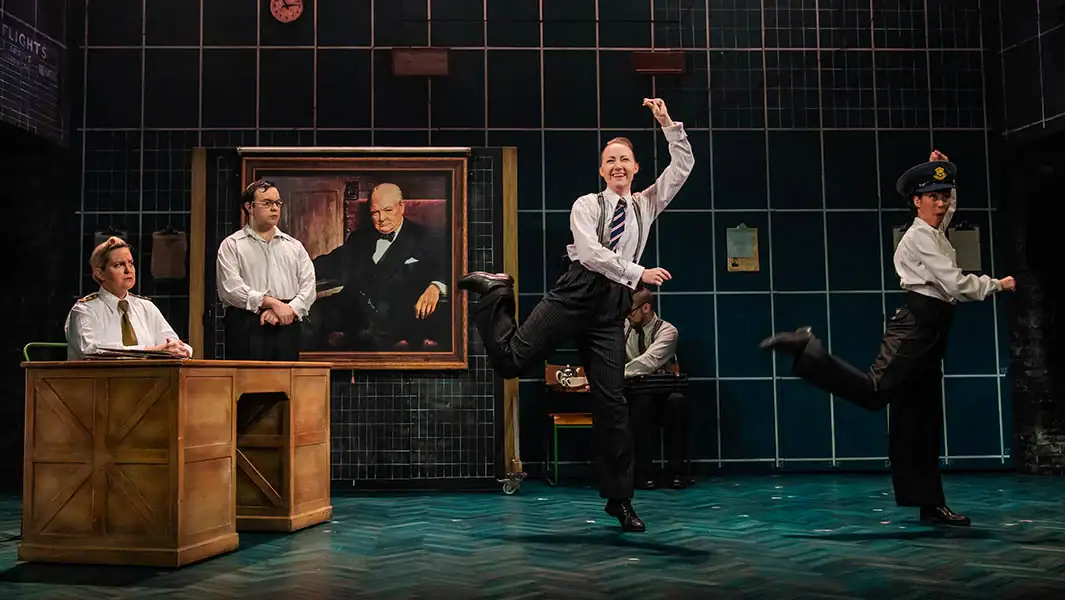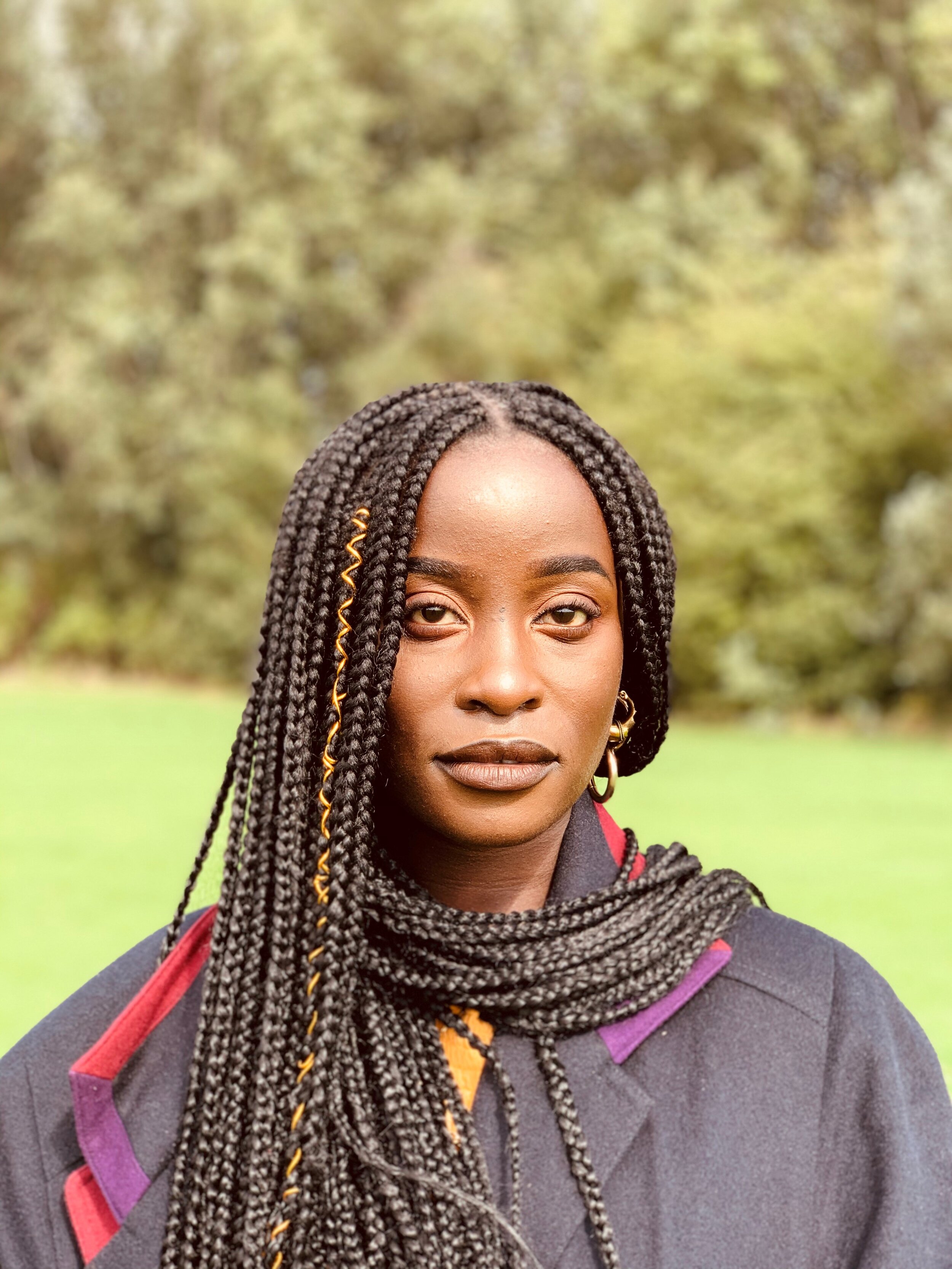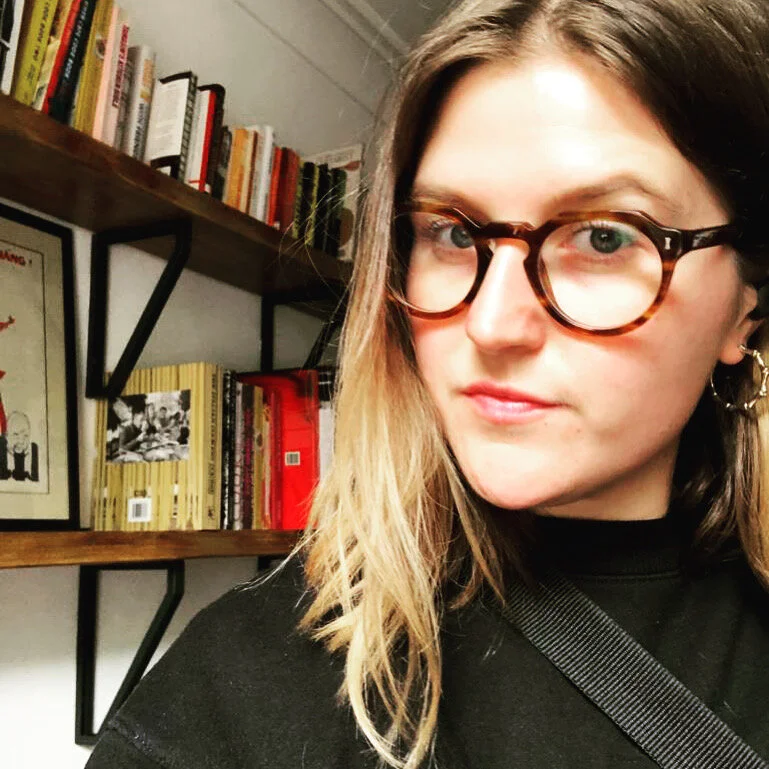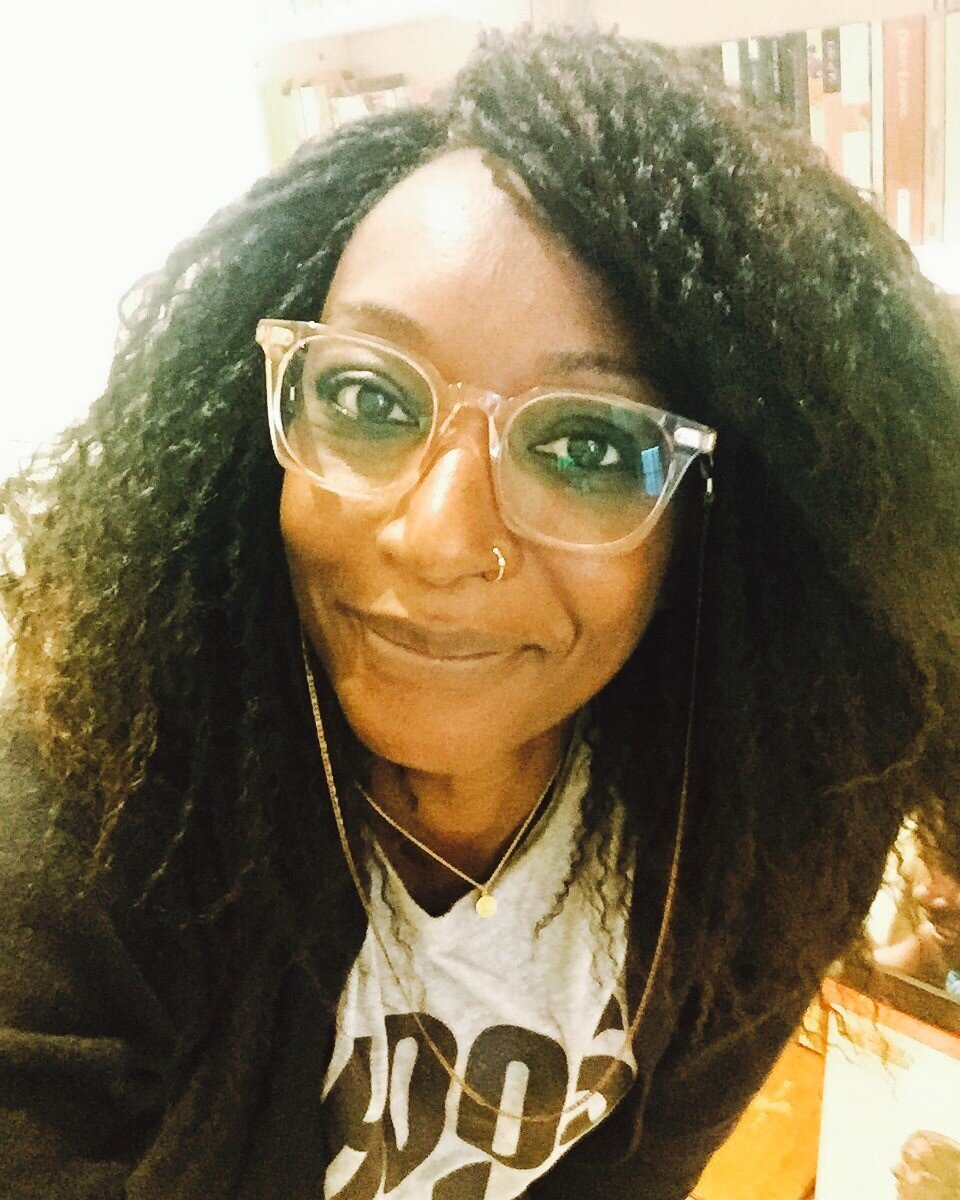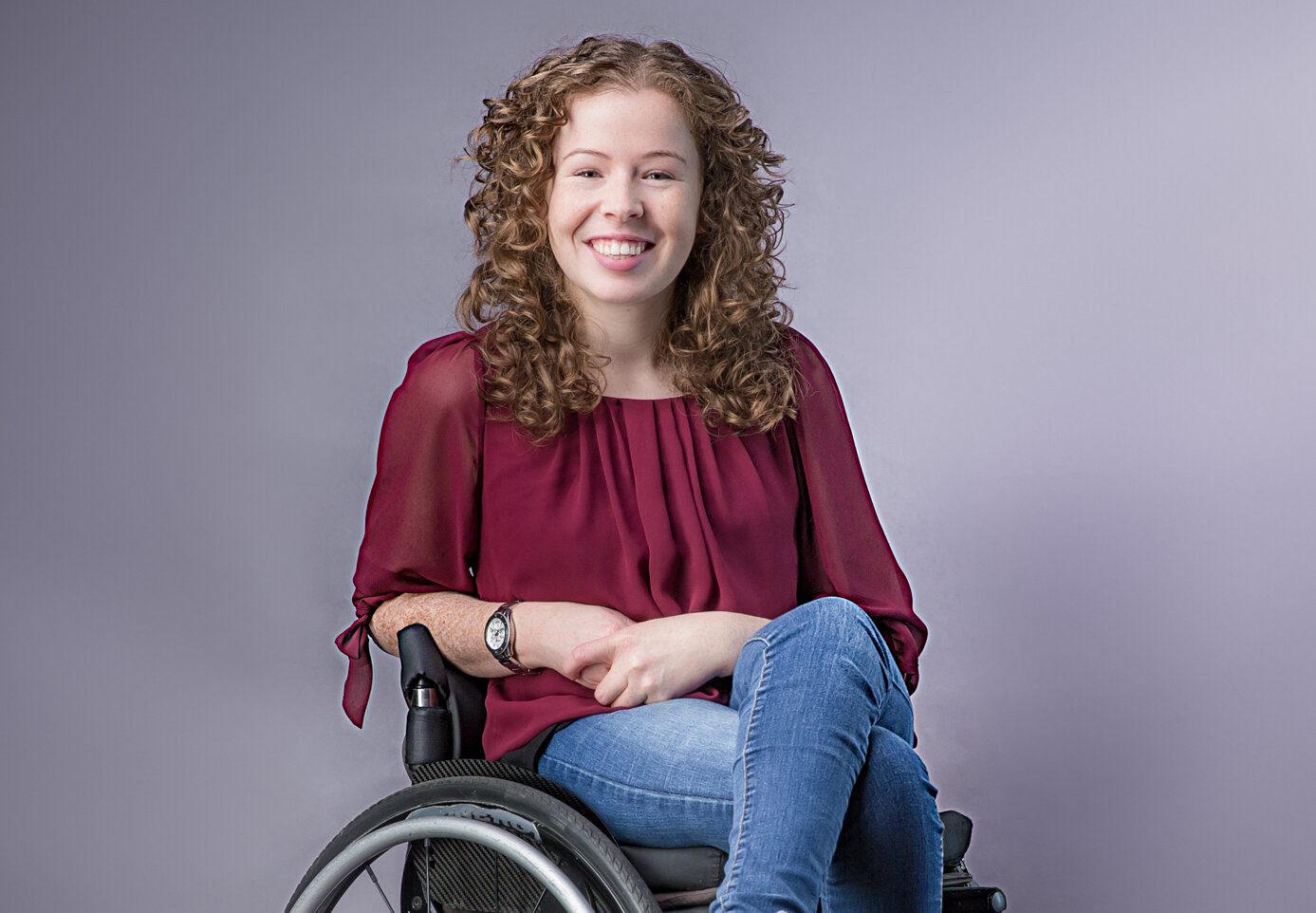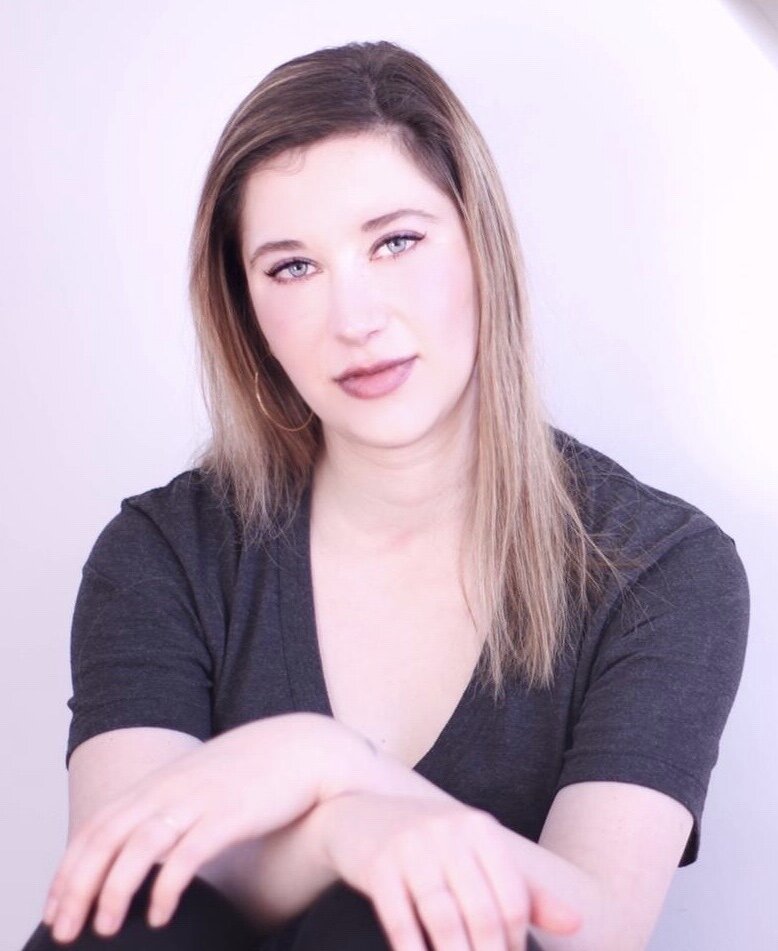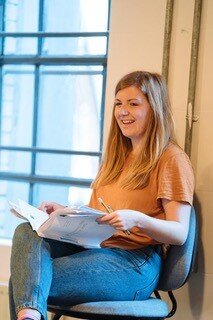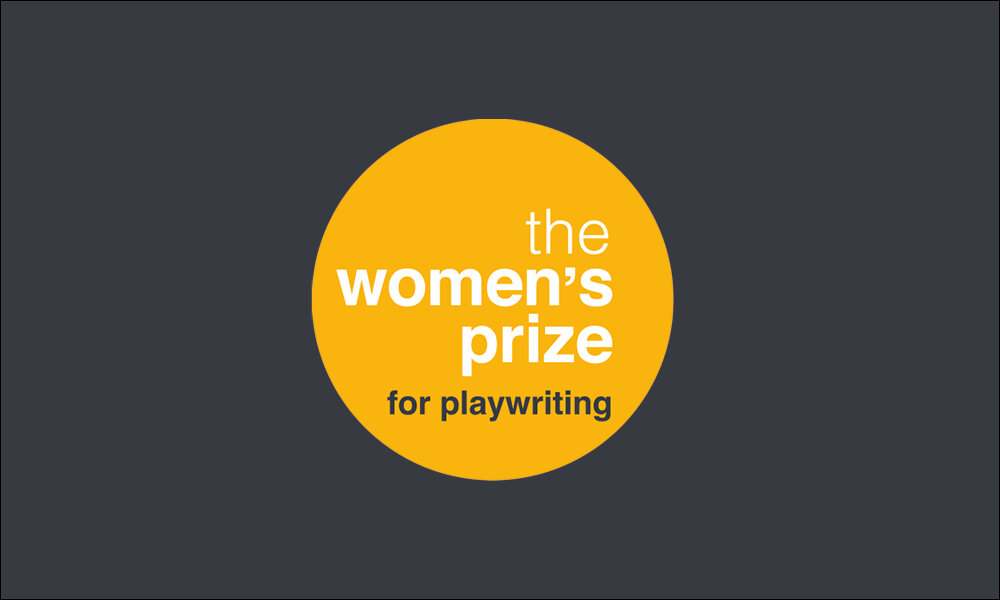
EKP and Paines Plough, with 45North and in association with Sonia Friedman Productions, today announce the finalists for the inaugural The Women’s Prize for Playwriting. Concord Theatricals is proud to be the Prize’s official publishing partner. The overall winner, who is yet to be announced, will receive £12,000 in respect of an exclusive option for the lead producers of the Prize to co-produce the winning play.
These seven finalists have been selected from 1,169 entries by female-identifying playwrights. Get to know their scripts below.
…
…blackbird hour by babirye bukilwa
babirye is an actor, model, poet (SISTA!, THE COLOUR OF MADNESS), podcaster and songwriter. Most recently seen returning to the National Theatre stage opposite Cate Blanchett and directed by Katie Mitchell, her notable work includes the Royal Court, the Hampstead theatre, The Nottingham Playhouse, the Arcola, Soho, The Leicester Curve, BBC, UKTV/Alibi/Showtime, Channel 4 and the ICA. babirye was shortlisted for the Bruntwood Prize for Playwriting Shortlist 2019 with her debut play …blackbird hour.
babirye co-founded the award nominated podcast ‘SISTREN’; a podcast and collective founded in 2015 to amply the Black, femme Queer British experience. She has modelled for Burberry, Adidas, Macy’s, Dr Martens and Blue magazine. She was also noted by the Guardian newspaper as ‘One of ten female creatives 2019’. babirye was invited to join the BBC London writers room 2018 as well as the Royal Court Introduction to Playwriting writers room 2019. She is currently an artist in residence at Theatre Peckham 2020, with her second play …cake an origin story to her debut play …blackbird hour.
Describe your play in a sentence.
…blackbird hour is a call to arms to loving oneself when love has evaporated from the body.
What was the inspiration for the piece?
The play was inspired by my own unanswered questions about the meaning of life and love and the concept of a ‘safe space’.
What would winning The Women’s Prize for Playwriting mean to you?
I’m not thinking about winning the prize, awards give me lots of anxiety, but if did manage to bag a win I know my younger self would be really really happy and proud of the older me.
Who are your favourite female writers or artists?
debbie tucker green, bell hooks, winsome pinnock, Bola Abadje, Rihanna Jade- Parker, Audre Lorde, Abondance Matanda, Temi Wilkey, Nao and Yrsa Daley- Ward; also two brilliant non-binary artists, Dylema and Michelle Tiwo.
COLOSTRUM by Liv Hennessy
Liv Hennessy is a writer from the West Midlands, interested in regional voices and stories. She has written several short pieces during her time as a Pentabus Theatre young writer, and with the Royal Exchange Young company. She currently works as the Story Editor for ITV Emmerdale, and COLOSTRUM is her first full length play.
Describe your play in a sentence.
Set during calving season on a West Midlands farm, three people navigate their pastoral duty to the land, to the animals, and to each other.
What was the inspiration for the piece?
I grew up around Hereford – a place most people have either never heard of, or know little to nothing about. For some, they’ll know it as the site of the UK’S SAS regimental base. At my school, most of the young lads who didn’t get enough GCSE’s went into the army, and then to Afghanistan; the few who were lucky enough to make it back did so irrevocably changed.
These people litter the local farms after their discharge, looking for cash in hand work. But working the land is no easy feat; it’s tiring, lonely and often a site of extreme violence. My play attempts to ask questions about care: who gives it? Who deserves it? Who needs it the most? And when does care become harm?
What would winning The Women’s Prize for Playwriting mean to you?
I already feel incredibly lucky to be included on a list with so many amazing female writers! Currently, I can only find time to write on weekends and evenings, so winning this prize would be truly life-changing for me: it would give me the chance to dedicate myself to my craft, and hopefully pursue a career in theatre writing.
Who are your favourite female writers or artists?
Lucy Kirkwood, Michaela Coel, Claudia Rankine, Maggie Nelson, Anna Jordan, Lulu Rackza, Jill Lepore, Winsome Pinnock, Julia Davis… Too many to mention!
PARADISE STREET by Chinonyerem Odimba
Chinonyerem Odimba is a playwright, screenwriter, theatre director and poet. Her work for theatre includes Joanne and Amongst the Reeds for Clean Break / The Yard, a modern retelling of Twist for Theatre Centre, and Medea at Bristol Old Vic. Recent commissions have seen her work produced at Hampstead Theatre, Kiln Theatre, Live Theatre, Watermill Theatre, Radio 4, and Channel 4. She is currently working on commissions with RSC, BBC and Jermyn Street Theatre.
Chinonyerem has also worked as an Assistant Director/Director for Bristol Old Vic and Theatre503,and was due to be directing Braids at Live Theatre, Newcastle in April 2020.
Chinonyerem Odimba also teaches in theatres and universities across the UK.
Describe your play in a sentence.
This is a story that takes in the shifts of both attitudes and violence, in is a new folklore style, it confounds any ideas of Black British presence, and follows the hopes, dreams, and fears of generations of Black women starting with a girl called Gabe.
What was the inspiration for the piece?
I want to really challenge the idea that Black communities in the UK are /new’ communities. I want to present an audience with a new type of folklore and to elevate the stories/histories of Black women to a mythical place. I want to ask – what has really changed in our ideas of who gets to call themselves British?
What would winning The Women’s Prize for Playwriting mean to you?
This is hard to put into words. When I wrote this play, many people asked me to push for it to get produced. But somehow it wasn’t right. Winning would be affirmation for me that big stories about Black female characters have a home in our theatre canon. It would honour every single one of these characters – and make them real in this world. Basically tears of joy for days!
Who are your favourite female writers or artists?
Winsome Pinnock, Juliet Romero-Gilkes, Timberlake Wertenbaker, Jasmine Lee-Jones, Yolanda Mercy, Suzan Lori-Parks, Theresa Ikoko, Lorraine Hansberry, Sonia Boyce, Rona Munro, Patience Agbabi, Sade, Tracy Chapman, Grace Nichols, Angela Carter, Me’shell Ndegeocello.. .more, more, more!
Reasons You Should(n’t) Love Me by Amy Trigg
Amy is an actor and writer from Essex. Born with Spina bifida, Amy was the first wheelchair user to graduate from a performance course at Mountview Academy of Theatre Arts.
Acting credits include: The Taming of the Shrew and Measure for Measure (Royal Shakespeare Company), Shakespeare within the Abbey and The Sonnet Walks (Shakespeare’s Globe), Goth Weekend (The Stephen Joseph Theatre and Live Theatre), The Who’s Tommy (Tour), The Glass Menagerie (Nottingham Playhouse), Unprecedented (BBC and Headlong) and Mamma Mia! Here We Go Again (Universal).
Amy’s essay An Ode to Improvisation (and Poehler and Fey) features in the book Feminist’s Don’t Wear Pink (and other lies), curated by Scarlett Curtis and published by Penguin. In 2014, Amy was a regular guest writer for Access Magazine. She is known for her one-woman sketch The Rebrand, for which she won ‘Colchester New Comedian of the Year 2016’. In 2020, Amy wrote two short digital plays for the Royal Shakespeare Company and Midsummer Festival.
Describe your play in a sentence.
Juno was born with Spina bifida and is now clumsily navigating her twenties amidst street healers, love, loneliness and the feeling of being an unfinished project.
What was the inspiration for the piece?
Back in 2018 I wrote an essay about feminism and intersectionality for the book ‘Feminists Don’t Wear Pink (and other lies)’. This encouraged me to write a series of essays about life as a young woman with Spina bifida exploring how being a disabled child impacts early adulthood. I was essentially writing a series of monologues so I re wrote the whole thing as a fictionalised one woman play…well it’s fictional but it’s also about a disabled woman from Essex who plays Dungeons and Dragons, so I’d be lying if I said it wasn’t influenced by my life! I hope that it’s honest and relatable to everyone – disabled or not.
What would winning The Women’s Prize for Playwriting mean to you?
It’d be awesome to see the play produced by EKP and Paines Plough. They’re both companies I think very highly of and I love what they’re doing for the industry and the artists within it. Who wouldn’t want to work with them? So, yes winning would be really exciting and it’d mean a lot to have a play that holds a special place in my heart recognised by the panel, but I have to admit…googling all the other writers and seeing my play alongside their work is a prize in itself.
Who are your favourite female writers or artists?
There are too many! My current top ten are…Amy Poehler, Nora Ephron, Michaela Coel, Charlie Covell, Jennifer Lee, Phoebe Waller Bridge, Alice Birch, Laura Wade, Greta Gerwig and Lizzo…does Lizzo count? I’m going to say that Lizzo counts because no one else can write those songs, dance those moves and then stop for a flute solo. No one.
Red Sky at Night by Eve Leigh
Eve Leigh is a writer for performance. Her plays include Midnight Movie (Royal Court/Berlin Theatertreffen Stueckemarkt 2020); While You Are Here (The Place/Dance East); The Trick (Bush Theatre, national tour); Spooky Action At A Distance (Royal Court/RWCMD); The Curtain (Young Vic Taking Part); Stone Face, and Silent Planet (both Finborough Theatre).
Game text/story design includes The Delegation (Coney/Точка доступа); A Day In The Life Of Someone Else (Oscar Mike). Installations include Movimento/Variations (36 маймуни/Bulgarian National Theatre Festival); Your Future (HAU/Sophiensaele/Ballhaus Ost/Camden People’s Theatre). Dramaturgy includes How To Win Against History (Young Vic).
Commissions include National Theatre Connections, Bush Theatre, Royal Shakespeare Company, Sheffield Theatres, PappyShow. She was artist-in-residence at the National Theatre of Greece 2017. Awards include Jerwood/Royal Court New Playwright Award 2019 (with Jasmine Lee-Jones), Bruntwood Prize shortlist 2019, Berlin Theatertreffen Stueckemarkt selection 2020.
Eve says: ‘It’s hard to put into words why I write. I want every play of mine to be an emergency. There’s something about the ritual of emergency, an emergency happening at the same time in the same room every evening, that feels like an essential response to the moment we live in.’
Describe your play in a sentence.
Red Sky at Night is about living as an immigrant in London, capitalism, aliens, and other things that are probably going to kill us.
What was the inspiration for the piece?
The starting point of the game was my story, and the stories of other immigrants I know, contrasted with the dehumanising stories of migrants we see all around us. I wondered, what would it be like for the migrants who go to the theatre (and we’re here!) to see ourselves reflected onstage? To be able to share our real experiences of the subtle or violent ways we live as outsiders? And what if we found a form that really reflects that, that is on its own frequency in the same way that London English is its own frequency?
What would winning The Women’s Prize for Playwriting mean to you?
To me, winning the Women’s Prize for Playwriting would mean a turn of the tide of years of struggle. I just don’t think I’d have written this play, in the way that I did, if I wasn’t a neurodiverse foreigner. It represents my writing at its most wild and personal. And when it seemed there wasn’t space for this play in British theatre, it seemed to me that there wasn’t really space for me, either – certainly not me pushing myself to the utmost, me doing my distinctive best to tell stories we don’t hear nearly enough. I feel shy even talking about what the possibility of winning means to me. Winning means squeezing out of a space that was too small, for too long, and breathing a deep breath.
Who are your favourite female writers or artists?
Nwando Ebizie, Nadia Nadarajah, Young Jean Lee, debbie tucker green, Lola Arias, Weronika Szczawinska, Hito Steyerel, Andrea Long Chu, Jenni Jackson, Clarice Lispector, Ottessa Moshfegh, Alice Coltrane, Rachel Bagshaw, Cécile Tremolieres, Khadija Raza, Rosie Elnile, Jasmine Lee-Jones, Alice Birch, Chris Bush, Yasmin Joseph, babirye bukilwa, Matilda Ibini, Miriam Battye, Monsay Whitney, Sonali Bhattacharya
The Virgins by Miriam Battye
Miriam Battye is a writer from Manchester. She had her London debut with her play Scenes with girls at the Royal Court in January 2020, directed by Lucy Morrison. Her other plays include Trip The Light Fantastic (Bristol Old Vic), Pancake Day (Bunker Theatre/PLAY Theatre Co) and All Your Gold (Theatre Royal Plymouth), and she has written extensively for community and youth groups in Manchester and the South West. She also has recently started to write for television and was the 2018 Sister Pictures Writer In Residence.
Describe your play in a sentence.
Over one evening, four virgins and two non-virgins try to answer the question that has been repeatedly asked of them, ‘What do you want?’
What was the inspiration for the piece?
I read Lysistrata, where a citizen creates a radical sexual policy to try and stop a war. I wondered what a radical sexual policy might be today, and what the war was, and found I had more questions than answers, so I started writing.
What would winning The Women’s Prize for Playwriting mean to you?
I’d be so happy to see this play on stage. That’s the dream, right? I never thought it would be. The play means a lot to me, in it’s ugly and ungainly mess, and it has been misunderstood and rejected a lot on the way to the place is it now. I’m amazed it has got this far to be honest.
Who are your favourite female writers or artists?
Victoria Wood, Norah Ephron, Vanessa Kisuule, Marina Carr, Amia Srinivasan, Olivia Laing, Dolly Parton, Little Mix.
YOU BURY ME by Ahlam
Ahlam is an occasional writer, she tries to fit it between her anxiety about the end of the world and her anxiety about what her parents would think. When she’s not writing plays, she spends her time teaching herself how to put on liquid eye-liner, wondering why koshari isn’t the most popular dish in the world and contemplating who she would have been if she had grown up in Blacksburg (VA) instead of Cairo (Egypt).
Describe your play in a sentence.
The play is about love and resistance in Cairo.
What was the inspiration for the piece?
I wanted to create a play that is essentially a small portrait of the youth that fought in Tahrir, of how young people in Cairo still go through life dealing with the usual issues around identity and sexuality and family, but they do so knowing what tear gas feels like, they do so having loved ones in jail, they do so having witnessed or partook in such an extraordinary moment. When I began to write the play in 2015, the feeling of complete defeat and the violent repression of the new military regime had only just begun, and of course it made its way into the play, making the establishment of a new police state absolutely central to the lives of the characters.
What would winning The Women’s Prize for Playwriting mean to you?
You Bury Me has been rejected a lot in the UK. It’s been rejected by theatres, rejected by other prizes, and rejected by radio. The main piece of feedback I’ve received from almost every venue was that my play “lacks weight.” Winning this prize would mean an acknowledgement that, for some, this work actually does “have weight” and that validation for me, is invaluable.
Who are your favourite female writers or artists?
There are way to many to count so off the top of my head Suzan Lori-Parks, Yasmina Reza, Radwa Ashour, Oona Doherty, Uma Nada-Rajah, Koleka Putuma, Laakkuluk Williamson, Hanan Hajj Ali, Paula Vogel, Jackie Kay, Rayhana Obermeyer, Nadine Labaki and this is just to name a very, very few.
Learn more about The Women’s Prize for Playwriting.
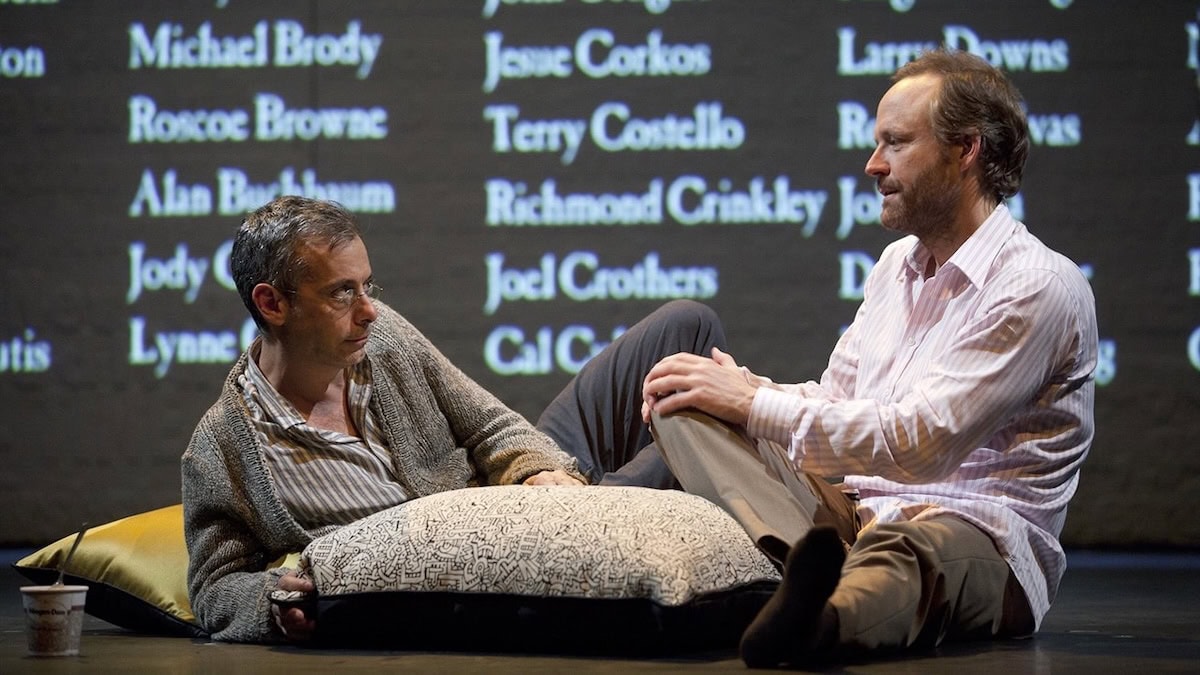
The Truth Behind… The Normal Heart
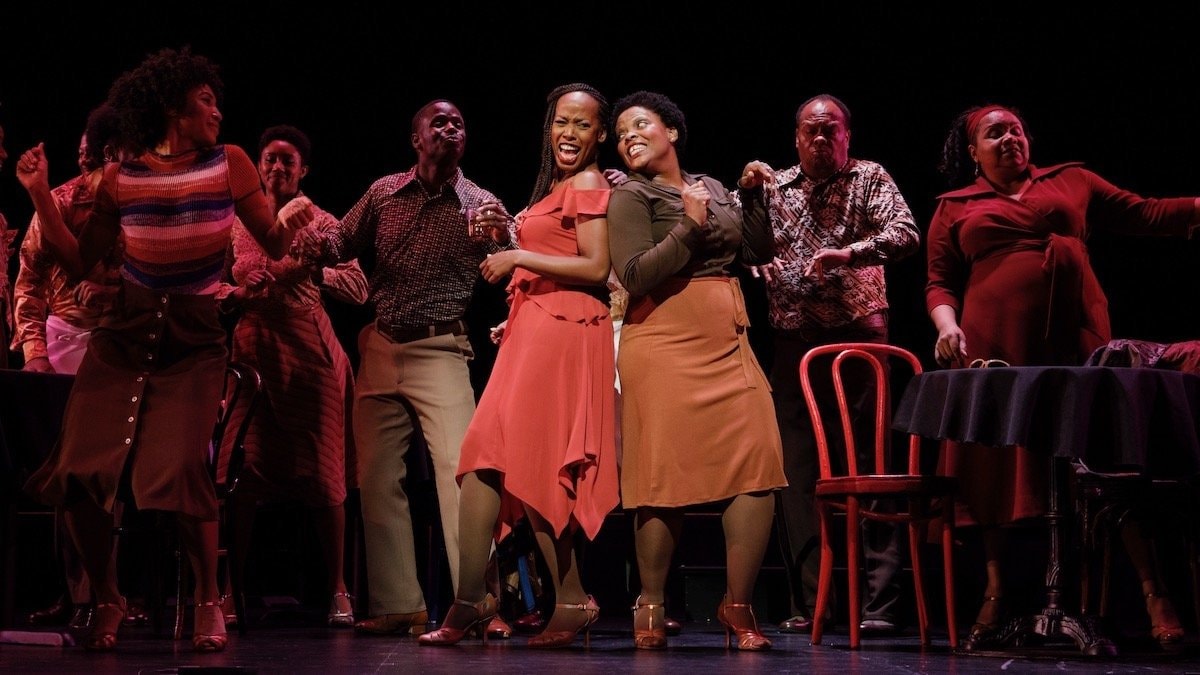
Musical Revues
